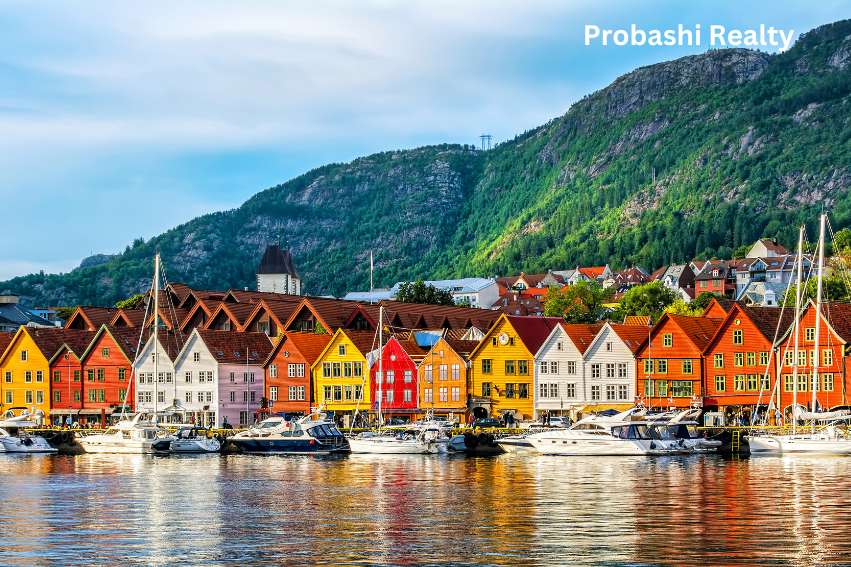Buying property in Norway as a foreigner involves several legal and practical considerations. Here’s a comprehensive overview:
-
Legal Framework:
- Norway generally has liberal regulations regarding property ownership by foreigners. Non-residents can purchase residential and commercial properties without any specific restrictions.
-
Property Types:
- Residential Property: This includes houses, apartments, and condominiums.
- Commercial Property: Offices, retail spaces, industrial buildings, etc.
- Land: Vacant land for development or agricultural purposes.
-
Legal Process and Documentation:
- Title Deeds: In Norway, property ownership is registered with the Norwegian Mapping Authority (Kartverket). Title deeds (e.g., grunnbok) contain information about the property’s owner, boundaries, mortgages, and encumbrances.
- Real Estate Agents: While it’s not mandatory to use a real estate agent, many buyers opt for their services to facilitate the purchase process.
- Due Diligence: It’s essential to conduct thorough due diligence before purchasing property. This may include property inspections, land surveys, and verifying the property’s legal status.
-
Financing:
- Foreign buyers may face challenges when seeking financing from Norwegian banks. It’s advisable to explore financing options in your home country or through international lenders.
-
Taxation:
- Property Tax: Norway imposes an annual property tax based on the property’s assessed value. The tax rate varies depending on the municipality where the property is located.
- Capital Gains Tax: Profits from the sale of property in Norway are subject to capital gains tax. The tax rate depends on various factors, including the length of ownership and the seller’s tax residency status.
- Value Added Tax (VAT): VAT applies to the sale of new residential properties, but not to the sale of existing properties.
-
Legal Assistance:
- While it’s possible to navigate the property purchase process independently, engaging a Norwegian lawyer or legal advisor can provide valuable assistance, especially for non-resident buyers. They can help with contract review, legal compliance, and navigating Norwegian property laws.
-
Residency and Visa Requirements:
- Buying property in Norway does not automatically grant residency or citizenship. Non-EU/EEA citizens may need to obtain a residence permit to live in Norway for an extended period.
-
Local Regulations:
- Regulations regarding property ownership, zoning, building codes, and land use vary by municipality. It’s essential to familiarize yourself with local regulations before purchasing property.
-
Cultural Considerations:
- Understanding Norwegian culture and norms can facilitate communication and interaction with sellers, agents, and authorities throughout the property purchase process.
By considering these factors and seeking appropriate advice, foreign buyers can navigate the process of purchasing property in Norway smoothly and efficiently.



